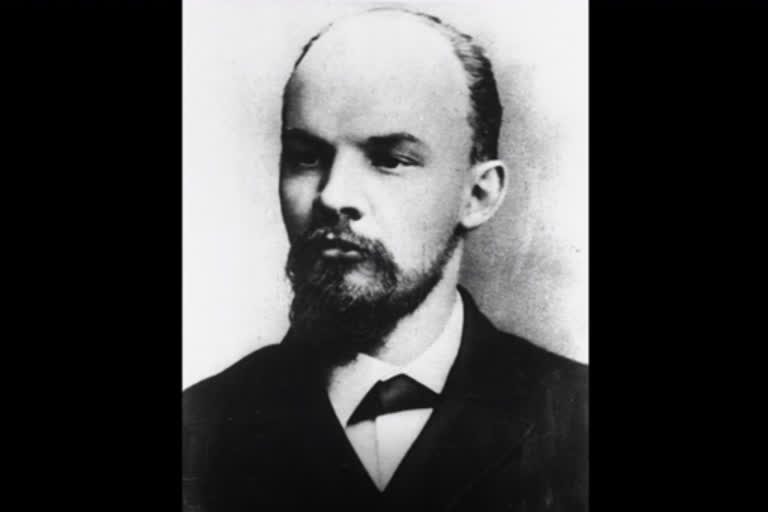Moscow: The post-1870 Franco-Prussian war paved the way for sweeping changes in Russia. The socio-political events that followed thereafter had impacted the entire world in a great way. One man who led the revolution was Vladimir Ilyich Ulyanov, known as Lenin. Born to a middle-class family in Simbirsk in April 22, 1870, Lenin embraced revolutionary socialist politics following his brother's 1887 execution.
In February 1917 people take to the streets of St Petersburg in mass demonstrations. Just a few days after the protests broke out, Russia's Tsar Nicolas II was forced to abdicate when Russian army forces joined the revolutionaries.
A provisional government took over the reins of power.
Revolution:
The first revolution of 1917 began in late February according to Russia's Julian calendar (March in the Gregorian calendar) and is known as the February Revolution. But this was just the beginning of the upheaval of 1917.
On November 7, 1917, a second revolution took place known as the October Revolution as Bolshevik forces led by Lenin, who had recently returned to Russia from Switzerland, overthrew the provisional government of Alexander Kerensky.
Lenin had lived for over a year in Zurich from February 21, 1916, to April 2, 1917.
This second revolution led to the transformation of Russia's political system and the eventual creation of the Soviet Union. The Tsar, his wife Alexandra, and their five children were executed by a Bolshevik firing squad on July 17, 1918.
A minor political force during most of 1917, the Bolsheviks succeeded in carving out a Communist state that would last until 1991, with Lenin at the centre of a personality-cult.
Read more:Putin postpones World War II victory parade due to COVID-19
Dr Konstantin Morozov, the Senior research fellow at the Institute of Russian History of the Russian Academy of Sciences, says that the legacy of the Soviet regime has overtaken Lenin's original aims.
"Lenin is seen in two ways: on the one hand Lenin can be seen as a revolutionary who wanted to overthrow Tsarist absolutism, and on the other hand, Lenin can be seen as the creator of the totalitarian Soviet matrix (system), which led to a regime that denied individual rights and political freedoms and crushed the individual. Not in words but in deeds. In words everything was great."
Lenin, in 1918, split with the Left Social Revolutionaries and renamed the Bolsheviks the Russian Communist Party.
Lenin's Death:
Three months before he died, Lenin wrote a testament criticizing his comrade Joseph Stalin and recommending his removal as Communist Party general secretary. But the document was suppressed following Lenin's death and Stalin eventually assumed complete control of the government.
Morozov says that Stalin's shadow has obscured the importance of Lenin's role. "Lenin has a very large place in Russian history," he says, adding, "Lenin proved to play a fatal role in Russia's history and his importance today is underestimated."
Mrorzov went on to add: "Paradoxically, today he is seen in the shadow of Stalin, though Stalin was, of course, a secondary figure compared to Lenin. The paradox of history and its irony is that Lenin, who believed himself to be a revolutionary, in fact, became the founder of the Soviet totalitarian matrix (system). He wanted to create, through experiment and a breakthrough, a socialist society, whose goal was to create the conditions for the development of the individual, as all socialists thought, he created a system that crushed the individual"
Lenin died 21 January 1924 after a number of strokes left him unable to speak and move.
Morozov says that his legacy continues in the modern Russian state: "In fact, the cause of Lenin in the modern world is still alive, because much of what there is in the post-Soviet system is nothing but a continuation of the Soviet (legacy). Authoritarian, undemocratic and denying of the individual."
Also read:COVID-19: Top Moscow doctor tests positive, shook Putin's hand
